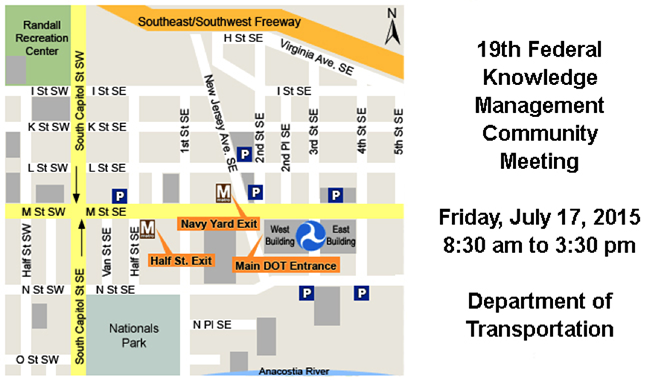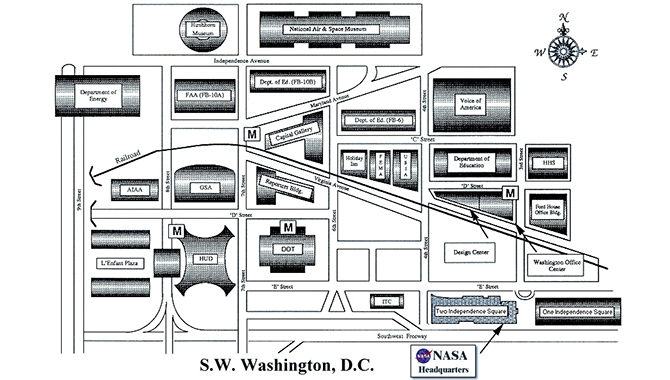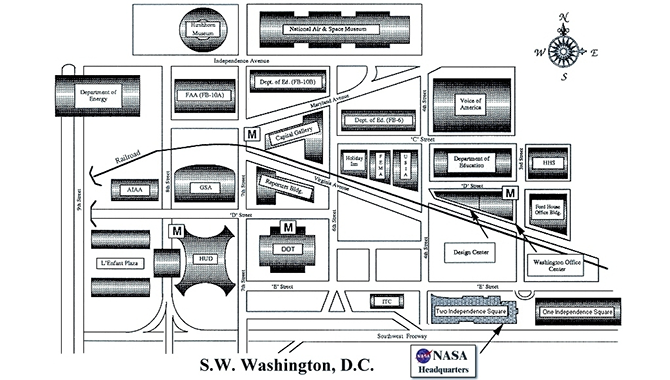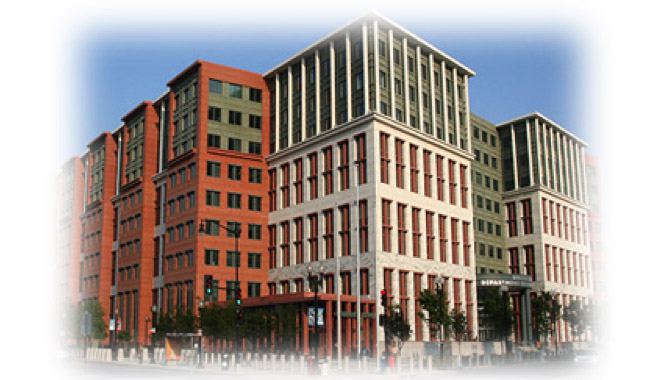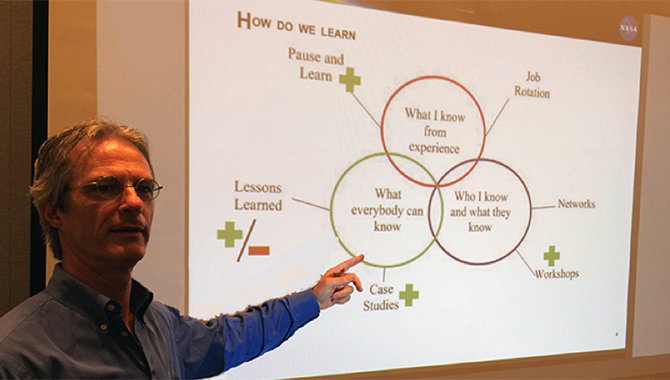
Dr. Ed Rogers, Chief Knowledge Officer at Goddard Space Flight Center, presented at the 19th Quarterly Federal Knowledge Management Community meeting.
Photo Credit: NASA CKO
On Friday, July 17, 2015, the 19th Quarterly Federal Knowledge Management Community met at the Department of Transportation (DOT).
Keynote speaker Kenneth Leonard, Director, Intelligent Transportation Systems (ITS) Joint Program Office, Department of Transportation (DOT), kicked off the daylong meeting by tying a working definition of knowledge management (KM) to “the way that society moves,” that is, transportation. “KM and intelligent transportation systems,” stated Leonard of his office, “have grown up together.”
After offering a brief but lively history of ITS, he summarized his office’s new strategic plan built around two priorities—advancing “connected vehicle implementation” (think “driver warnings” and beyond) and automation (think “Google cars” and beyond), both with the common goal of increasing safer transportation for all. He also explained how—using example the community could relate to—advancing connected vehicles and automation shapes best practices around the research, development, and adoption of technologies as they emerge.
Concluding, Leonard stated, “Big Data will continue to add to our knowledge efforts” and affirmed DOT commitment to continuing to expand its research in developing mechanisms for applying that new knowledge for improved safety and mobility across all types of travel. Because the ITS office shares knowledge with not only other DOT agencies but other federal agencies, Leonard’s keynote was in full step with wide-reaching FKMC initiatives and activities.
For the morning session, Dr. Ed Rogers, Chief Knowledge Officer at NASA’s Goddard Space Flight Center, presented Strategies for Transferring Project Lessons at NASA/Goddard. The presentation, designed by his colleague Barbara Fillip who was unable to appear, outlined three major forward-leaning elements: KM practices and achievements to date in the NASA/Goddard context, Knowledge Maps as innovative approaches to document and share lessons, and exploring “push” strategies to enhance the transfer of project lessons.
FKMC members asked many questions about Goddard’s mapping strategies and how best to explain and advocate for knowledge sharing to those beginning to transfer their knowledge to others. Rogers used the example of planning and throwing a very successful barbeque party: how does the host then explain to someone interested in how to throw a similar barbeque successfully. “You just can’t hand someone your grocery list for the party.” Knowledge transfer involves much more than documentation or being handed someone else’s documentation. The Goddard CKO is well-known inside and outside of NASA for his work in Case Studies and their methodology, examining the rationale for the case-study method and helping others to develop, publish, and implement cases studies in their objectives and projects.
During the afternoon, Turo Dexter, Knowledge Management Officer, DOT, demo-ed the APAN portal as the prospective replacement of Max.gov for the FKMC’s online collaboration and communications portal. The FKMC members voted in favor of moving forward with APAN after certain issues are addressed. One of the ideas for the online community of practice presence included breakout areas for specific working groups to bring together resources or even live chat. This would be an online experience similar to the “reporting out” sessions that usually occur during the afternoons of each quarterly meeting. Any content there, too, would be more than just a “grocery lists” something built upon, there to inspire reflection, action, and internalization.
This 19th meeting was no different: during the reporting out session of this meeting, the FKMC members shared strategies and brainstorms creative solutions to make KM more effective within their individual agencies, across the federal system, and beyond. The community began its own “grocery list” of topics to help the community solidify its focus during future meetings and its online presence. The next step is to organize this list and see how its ingredients make for “successful knowledge barbeques” for the future.
All registered members of the Federal Knowledge Management Community are welcome to attend quarterly meetings in person or by Adobe Connect. For more information on FKMC, please visit the Knowledge Management Community site on http://www.max.gov. Please contact Susan Snyder or call 301-837-3918 with questions or to become a new member.






